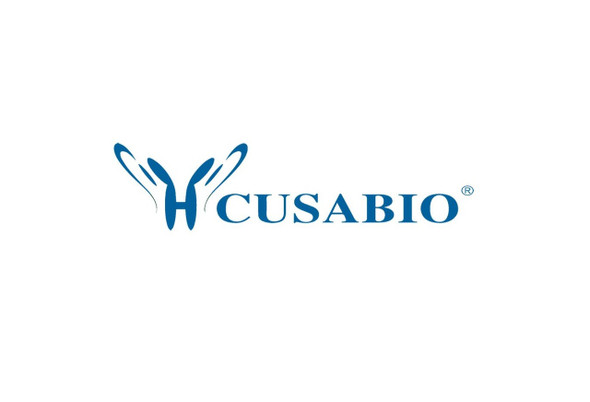Cusabio Human Recombinants
Recombinant Human Histidine--tRNA ligase, cytoplasmic (HARS), partial | CSB-BP010137HU
- SKU:
- CSB-BP010137HU
- Availability:
- 28 - 38 Working Days
Description
Recombinant Human Histidine--tRNA ligase, cytoplasmic (HARS), partial | CSB-BP010137HU | Cusabio
Alternative Name(s): Histidyl-tRNA synthetase
Gene Names: HARS
Research Areas: Epigenetics and Nuclear Signaling
Organism: Homo sapiens (Human)
AA Sequence: AERAALEELVKLQGERVRGLKQQKASAELIEEEVAKLLKLKAQLGPDESKQKFVLKTPKGTRDYSPRQMAVREKVFDVIIRCFKRHGAEVIDTPVFELKETLMGKYGEDSKLIYDLKDQGGELLSLRYDLTVPFARYLAMNKLTNIKRYHIAKVYRRDNPAMTRGRYREFYQCDFDIAGNFDPMIPDAECLKIMCEILSSLQIGDFLVKVNDRRILDGMFAICGVSDSKFRTICSSVDKLDKVSWEEVKNEMVGEKGLAPEVADRIGDYVQQHGGVSLVEQLLQDPKLSQNKQALEGLGDLKLLFEYLTLFGIDDKISFDLSLARGLDYYTGVIYEAVLLQTPAQAGEEPLGVGSVAAGGRYDGLVGMFDPKGRKVPCVGLSIGVERIFSIVEQRLEALEEKIRTTETQVLVASAQKKLLEERLKLVSELWDAGIKAELLYKKNPKLLNQLQYCEEAGIPLVAIIGEQELKDGVIKLRSVTSREEVDVRREDLVEEIKRRTGQ
Source: Baculovirus
Tag Info: N-terminal 6xHis-tagged
Expression Region: 2-504aa
Sequence Info: Partial
MW: 58.7 kDa
Purity: Greater than 90% as determined by SDS-PAGE.
Relevance: Aminoacyl-tRNA synthetases are a class of enzymes that charge tRNAs with their cognate amino acids. The protein encoded by this gene is a cytoplasmic enzyme which belongs to the class II family of aminoacyl tRNA synthetases. The enzyme is responsible for the synthesis of histidyl-transfer RNA, which is essential for the incorporation of histidine into proteins.The gene is located in a head-to-head orientation with HARSL on chromosome five, where the homologous genes share a bidirectional promoter.
Reference: An enzyme assisted RP-RPLC approach for in-depth analysis of human liver phosphoproteome.Bian Y., Song C., Cheng K., Dong M., Wang F.,Huang J., Sun D., Wang L., Ye M., Zou H.J. Proteomics 96:253-262(2014)
Storage: The shelf life is related to many factors, storage state, buffer ingredients, storage temperature and the stability of the protein itself. Generally, the shelf life of liquid form is 6 months at -20?/-80?. The shelf life of lyophilized form is 12 months at -20?/-80?.
Notes: Repeated freezing and thawing is not recommended. Store working aliquots at 4? for up to one week.
Function: Cytoplasmic histidine--tRNA ligase (Probable). Plays a role in axon guidance.
Involvement in disease: Usher syndrome 3B (USH3B); Charcot-Marie-Tooth disease 2W (CMT2W)
Subcellular Location: Cytoplasm
Protein Families: Class-II aminoacyl-tRNA synthetase family
Tissue Specificity: Brain, heart, liver and kidney.
Paythway:
Form: Liquid or Lyophilized powder
Buffer: If the delivery form is liquid, the default storage buffer is Tris/PBS-based buffer, 5%-50% glycerol. If the delivery form is lyophilized powder, the buffer before lyophilization is Tris/PBS-based buffer, 6% Trehalose, pH 8.0.
Reconstitution: We recommend that this vial be briefly centrifuged prior to opening to bring the contents to the bottom. Please reconstitute protein in deionized sterile water to a concentration of 0.1-1.0 mg/mL.We recommend to add 5-50% of glycerol (final concentration) and aliquot for long-term storage at -20?/-80?. Our default final concentration of glycerol is 50%. Customers could use it as reference.
Uniprot ID: P12081
HGNC Database Link: HGNC
UniGene Database Link: UniGene
KEGG Database Link: KEGG
STRING Database Link: STRING
OMIM Database Link: OMIM









